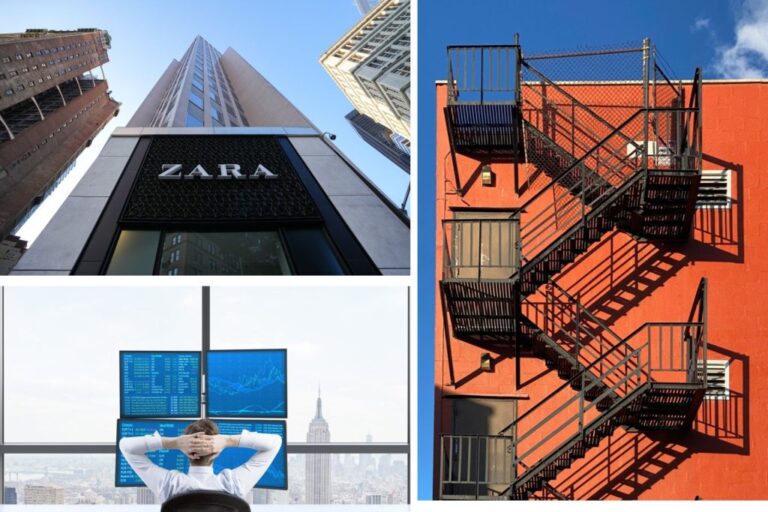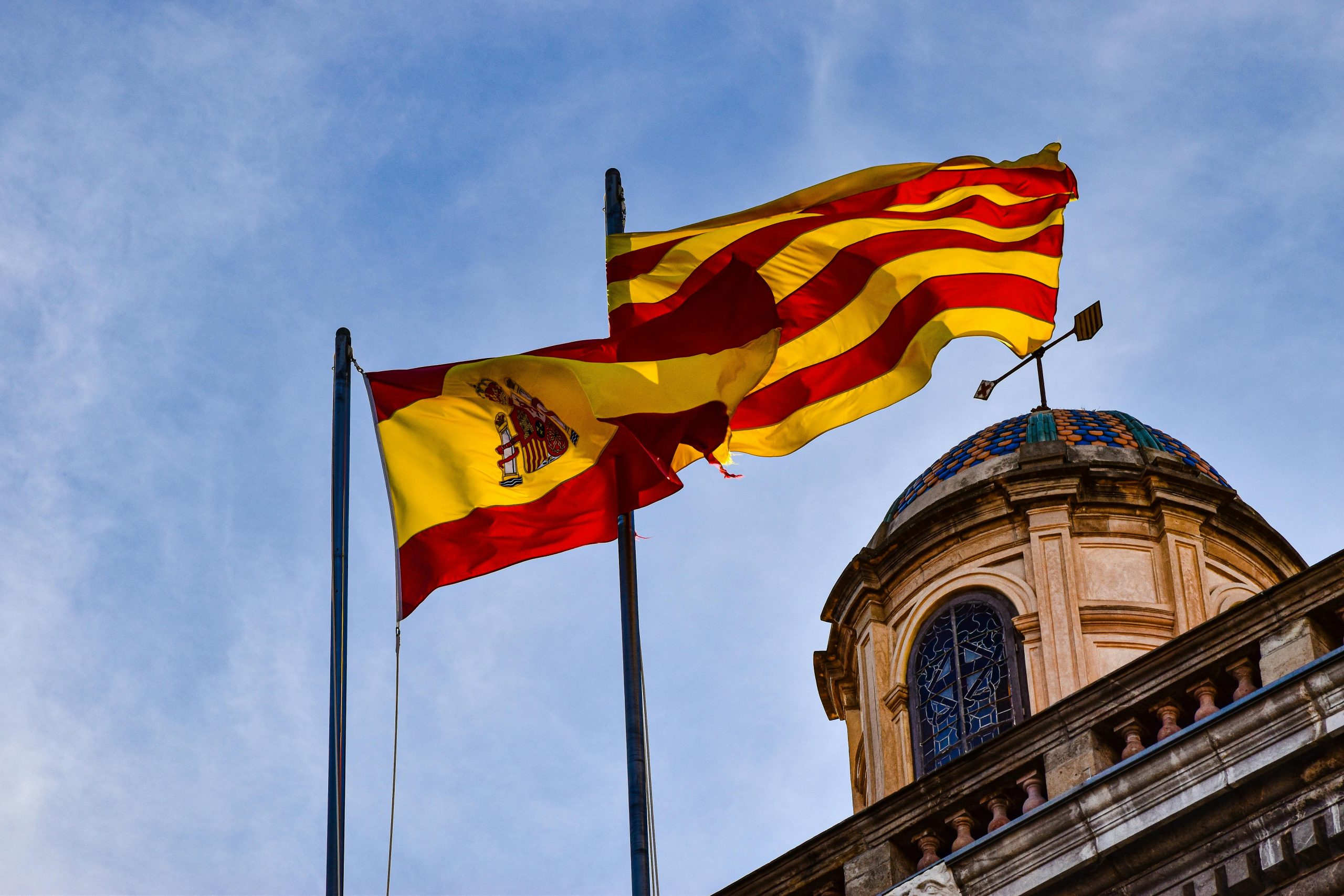Taxes in New York: Which should I pay?
Welcome to the Big Apple! Whether you're here for work, as a digital nomad, or an entrepreneur, discover the taxes you need to pay in New York.
IIf you’re new to the Big Apple or plan to stay for a while, understanding New York’s taxes is essential. This destination is one of the world’s most important economic centres, home to the headquarters of major companies, multinational corporations, startups, creative agencies, and financial firms.
Many foreign entrepreneurs choose to start their projects here due to the vast international market. Digital nomads and students also prefer New York for its dynamic work culture and top-tier universities. All of them need to stay up to date with the taxes they must declare in New York.
We’ll begin by telling you that New York’s tax system is characterised by its complex structure. It includes both state and local taxes, but we’ll cover everything in the following article. We’ll look at taxes for individuals, businesses, how you can pay these fees online, and whether there are any benefits you can take advantage of. So, let’s dive into the New York tax system!
Taxes for individuals in New York
An individual or natural person is someone who engages in economic activities on a personal basis. Someone who can work for a local company or as a freelancer. This group includes, for example, digital nomads settling in the city thanks to the US digital nomad visa. Also entrepreneurs registered as freelancers who want to open a business in the city, or students combining studies with work. All of them must declare a series of taxes in New York, which we will review next.
1. Federal, state, and local income tax
One of the most important taxes in New York is related to income, including federal taxes on all nationwide income, state taxes that fund public services like education, healthcare, or transportation, and local taxes that contribute to municipal services such as police, fire departments, and street maintenance. This tax is part of a progressive system with different brackets based on your annual income:
- Federal tax: With rates ranging from 10% to 37%.
- State tax: Ranges from 4% to 10.9%.
- Local tax: Rates vary between 3.078% and 3.876%.
- Example: If you earn $85,000 (€74,905) per year, you’ll pay about $13,000 for federal tax, $4,800 for state tax, and $2,800 for local tax, totalling approximately $20,600 (€18,150).
2. Sales tax
This tax applies to the purchase of most goods and services, adding a percentage to the final price. Individuals are responsible for paying it to businesses, which then remit it to the city of New York and the state. It’s important to know that, unlike other countries, tourists who make purchases in New York cannot request a refund for the sales tax. As we saw with income tax, there are also two types of rates here, state and municipal, which we explain in detail:
- State rate: 4%.
- Municipal rate: 4.5%.
- Special rate: A 0.375% tax is applied to the Metropolitan Transportation Authority (MTA), which is responsible for maintaining New York’s public transport system.
- Exemptions: Sales tax is not applied to essential food, prescription drugs, and certain personal care products.
- Example: If you buy a computer for $1,200 (€1,057) in New York, you’ll pay a total of 8.875%, so you’ll need to add $106.50 (€93.40) to the final price, resulting in $1,306 (€1,150).

3. Property tax
Another important tax in New York for individuals is the one applied to properties. This tax applies to homes, commercial buildings, or vacant land and is calculated based on its assessed value. In this case, the city collects the tax locally using the formula of adding the assessed value to the local tax rate, as follows:
- Assessed value: Determined by the city’s Finance Department in NYC or by the assessor’s office in other counties.
- Tax rate: Varies based on location, property type, and other factors such as square footage.
- Example: If you buy a house in Brooklyn for $800,000 (€704,990) with an assessed value of $48,000 (€42,300), your tax rate would be 20.098%, amounting to $9,467 (€8,342) per year.
Taxes for corporations or businesses in New York
There are also other tax rates in New York aimed at businesses or legal entities, meaning any entity legally established with its own rights and obligations. To operate in the city, businesses need to register with the New York State Department and obtain an EIN (Employer Identification Number). Let’s go through the main taxes they need to declare in the city.
1. Corporate income tax: Federal, state, and local
This type of tax in New York applies to corporations registered in the state, with a progressive percentage based on annual profits. As we saw for individuals, it also has three payment levels: Federal, state, and local, and the funds collected go towards financing services such as defence, transportation, schools, public health, social programmes, or infrastructure maintenance.
- Federal rate: Fixed at 21%.
- State rate: Ranges from 4.875% to 7.25%, depending on annual profits.
- Local rate: 4% for freelancers and 8.85% for businesses registered in the city.
- Example: A business with annual revenue of $1,000,000 would pay $210,000 in federal tax, $65,000 in state tax, and $88,500 in local tax, totalling $363,500 (€320,330).
2. Commercial property tax
Commercial properties, such as warehouses, stores, or offices, are also subject to taxes in New York, like the commercial property tax. The revenue generated from this tax is used to fund local services and street or building maintenance.
Properties related to a business are part of class 4 and are taxed at a rate of 45% on the assessed value, with a tax rate of 10.755%. For example, a commercial property in Brooklyn with a market value of $2 million would be taxed at $96,795 (€85,300) annually.
3. Commercial rent tax
Businesses in the city are also subject to other taxes in New York, such as the commercial rent tax, but it’s not applied to all businesses. You’ll only need to pay this tax if you spend over $250,000 (€220,309) on rent within Manhattan’s southern area, specifically south of 96th Street, where most high-value businesses are concentrated. This tax applies to tenants at a rate of 6% on the annual rent amount.

4. Commercial vehicle taxes
If your business owns commercial vehicles, these are also subject to taxes in New York at both the state and municipal levels, which vary depending on the type of vehicle. First, they need to be registered with the city’s Department of Motor Vehicles, at a cost of between $100 and $200 (€88.00 to €176) for vans or small trucks. Larger trucks or fleets will have a higher fee, up to $1,000 (€880).
Additionally, commercial vehicles weighing more than 8,165 kg and travelling on New York’s roads are taxed based on their weight and distance travelled. For example, a 27,000 kg truck travelling 16,000 km annually in the city would be charged a rate of 0.031 per kilometre, meaning it would need to pay $495 (€436) per year.
How to pay taxes online in New York
Most taxes in New York can be paid online through official portals like the New York State Department of Taxation and Finance. The process is straightforward and quick, and you can even schedule automatic payments to never miss an important deadline. Here are the steps you need to follow:
- Create an account on the platform.
- Register your tax details.
- Select the tax you wish to declare.
- Verify that all information is correct.
- Pay the amount shown using a card or bank transfer.
- Save or print the payment receipt.
To manage this type of online process safely and securely, as well as enjoy the best 5G coverage anywhere in New York, you have access to Holafly’s monthly plans. With them, you can travel to over 170 destinations without needing to change your SIM card, enjoy unlimited data, and connect to two devices simultaneously.
Important: If you are a frequent traveler and want to stay connected without worrying about expensive roaming or looking for a new SIM at every destination, Holafly’s subscription plans are for you. With a single eSIM, enjoy internet in more than 170 countries for a fixed price and no surprises on your bill. Travel without limits and connect easily and securely! 🚀🌍

If your trip is just for a few days, the best option is the eSIM for New York by Holafly, with unlimited data that you can purchase only for the days you need.
Tax benefits in New York
In addition to all the taxes in New York we’ve been discussing throughout this article, the city government has created a range of grants and subsidies to encourage international talent and attract new businesses. Here are some of the most important benefits available to check if you could be eligible:
| Tax advantages | Details |
|---|---|
| Tax credits for new businesses | Credits for hiring and developing green technologies. |
| Opportunity zones | Tax benefits for businesses developing projects in economically disadvantaged areas. |
| Deductions for remote workers | They can apply for expenses related to their work activity, such as materials or rent. |
| Incentives for startups | Grants and tax advantages for innovative startups. |
| Migration and residency | Access to state and municipal programmes supporting new residents and entrepreneurs. |
Tax benefits in New York City.

Frequently asked questions about Taxes in New York
The deadline to file income taxes is usually April 15th of each year, both federal and state.
If you are considered a tax resident, you will need to declare your global income. If not, you will only pay taxes on your earnings within the city.
Yes, when shopping at an online store, you must pay sales tax with 4% state and 4.875% local rates if the product will be delivered within New York.
If you forget to file any of your taxes in New York, you may have to pay a fine or interest applied to the debt, up to 14.5% of that amount.
Some international students may benefit from tax treaties between the US and their home country, allowing exemptions or reductions in taxes.





 Language
Language 


















 No results found
No results found







